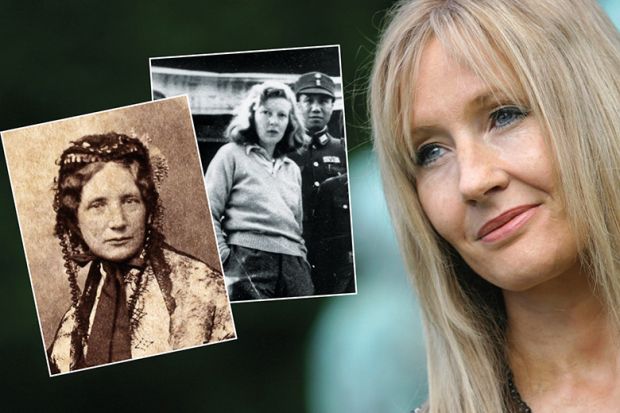It feels peculiar that in 2017 we need a scholarly book asserting that the vision of female writers encompasses the whole world. But apparently we do. In the age of pussy-grabber Donald Trump, the old protest that “women are people, too” has acquired unexpected relevance.
At Home in the World rebels against the myth that the greatest female authors have “devoted themselves almost exclusively to dramas of the marriage market”. Critics may view female novelists through the narrow lens of chick lit, but intrepid scribblers have ranged far and wide outside the domestic ghetto for two centuries.
Maria DiBattista and Deborah Epstein Nord reveal this dramatic landscape in a thoughtful and lively romp accompanied by Mary Wollstonecraft, Jane Austen, Harriet Martineau, Harriet Beecher Stowe, Willa Cather, Zora Neale Hurston, Virginia Woolf, Vera Brittain, Martha Gellhorn, Toni Morrison, Joan Didion and fellow travellers. They claim for women’s literature the great themes of war, adventure, travel, pioneering and politics – and thus the gravitas associated with such weighty subjects, typically assumed to be the province of men.
“It is our contention”, DiBattista and Epstein Nord say, “that these women writers should be ranked among the thinkers and speakers who imaginatively ventured into the public marketplace, where the ideas propelling the greater movements of the world are voiced, debated, modified, embraced, or discredited.”
While it is a tall order to compress 200 years into the same number of pages, the authors succeed admirably. Their introduction to the characters, plotlines and insights of this creative and quirky group is like a smorgasbord of appetisers reminding hungry readers just how tasty these cuisines are. Any of the subjects they examine could stand as an exemplar of their larger point, but particularly relevant is their chapter on war – a “man’s subject” if there is one.
Brittain, Gellhorn and Iris Origo produced works of startling depth, grace and individuality on humanity’s worst atrocities. They opposed violent conflict by chronicling it. Capturing the melee of battle, brutality of execution and perils of occupation, they reminded readers of each person’s duty to defend life and preserve humanity’s highest values. In the words of Gellhorn, whose five-year marriage to Ernest Hemingway earned her more fame than war reportage across six decades, “I believe that memory and imagination, not nuclear weapons, are the great deterrents.”
At Home in the World performs an extraordinary service. It shows that women deserve to be read as commentators on the world of affairs. But will they be? The best-selling female author in history, J. K. Rowling, famously left her first name off the manuscript of Harry Potter and the Philosopher’s Stone. Her second novel series appeared under the name of Robert Galbraith, described by the publisher as “a former plainclothes Royal Military Police investigator” who left to work in the civilian security industry. On both occasions, the author clearly did not wish to be dismissed out of hand, and thus took care to avoid the stigma placed on female authors.
This is a book that is at once inspiring and depressing. Its authors prove exhaustively that women have long commented astutely on public life. So why don’t we “know” it already? The problem has never been with those sending messages, but with those receiving them. It still is.
Elizabeth Cobbs is professor of history, Texas A&M University, and author of Hello Girls: America’s First Women Soldiers (2017).
At Home in the World: Women Writers and Public Life, from Austen to the Present
By Maria DiBattista and Deborah Epstein Nord
Princeton University Press, 296pp, £24.95
ISBN 9780691138114 and 9781400884773 (e-book)
Published 7 March 2017
Register to continue
Why register?
- Registration is free and only takes a moment
- Once registered, you can read 3 articles a month
- Sign up for our newsletter
Subscribe
Or subscribe for unlimited access to:
- Unlimited access to news, views, insights & reviews
- Digital editions
- Digital access to THE’s university and college rankings analysis
Already registered or a current subscriber? Login










